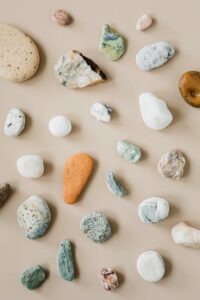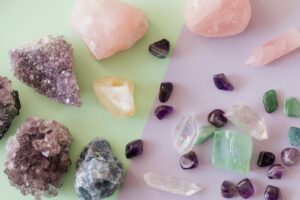Outdoor activities like gathering and distinguishing rocks entice kids into geology more than into other science areas. Shiny pebbles and rough minerals captivate children as nothing else does. Their natural love for geology paves the way for actual scientific learning for them.
Fun Geology Activities
You can take advantage of kids’ fascination with geology by plugging meaningful but uncomplicated experiments to their playtime activities. These tasks can make them realize that science can offer fun and engaging ways to learn outside the classroom’s confines.
Comparing the Rocks
Evaluating rocks is the simplest among geology activities. Almost every kid has had his collection and compared one mineral to another.
But try not to underestimate its value. Knowing the difference between rocks- color, weight, and texture- is an excellent introduction to the scientific method. It instills in them the importance of observation as a scientific process.
Hitting Rocks
Hardness is the primary characteristic of rocks and minerals. Some are tougher than others, and the Mohs Hardness Scale categorizes these rocks according to their resistance level.
Let the kids hit their rocks with each other and then record the results. They can also test the stones with coins, metal pieces, and other simple materials to see which is the hardest. It is best to guide them through this activity carefully.
Sampling the Core
Now, give the kids a delicious treat!
Core sampling is a process in which geologists take a sample of the underground minerals. They do this by drilling a device to the surface to see what makes it up and prepare a scientific explanation about the earth.
Start this activity by baking cupcakes with different batter colors with foil baking cups and icings to prevent them from seeing the colors. Let them drill a straw through the cupcake. After lifting the straw, inspect the samples taken, and let them tell the differences. You can eat them after the activity to recharge!
There are more activities kids can take part in to enjoy geology. They can play and feed their hobbies without the heavy burden of a formal classroom. What’s important is they get to explore science through fun and creative ways and learn more effectively.
